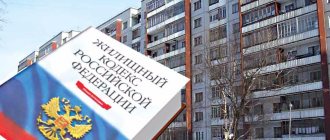Is it worth privatizing real estate? Or is it better to live under the terms of a social tenancy agreement?
Let's objectively evaluate the pros and cons of apartment privatization. On the one hand, you need to fuss with documents and give money (if there is no reason for a free procedure).
On the other hand, you receive ownership of real estate, and then you have the right to dispose of it: sell, lease, bequeath, and inherit.
What is apartment privatization and how does it happen?
Privatization is a procedure during which the state transfers property into the ownership of a citizen. Legal relations in this area are regulated by the law of July 4, 1991 No. 1541-1, as well as other acts.
As a result of privatization, a citizen receives all property rights (possession, disposal, use).
This means that you will be able to:
- sell an apartment;
- donate real estate;
- leave an object as an inheritance;
- register an apartment according to a will;
- make an office out of real estate;
- arrange redevelopment and so on.
If we are talking about an apartment registered under a social tenancy agreement, then you can only live in it. It is forbidden to even do redevelopment.
Legislation allows the privatization of a number of objects:
- land (land plots);
- housing (houses, apartments, townhouses, apartments);
- non-residential premises (offices, production facilities, etc.).
There are 2 types of property privatization:
- free;
- paid.
If we talk about residential premises, the situation here is like this:
- a person lives in an apartment received in Soviet times or a long time ago (but the property is used under a social tenancy agreement);
- a citizen applies to local authorities with a statement that he wants to register ownership of the apartment;
- The city administration transfers ownership of the apartment free of charge.
Approximately such a scheme is provided for in Art. 1 of the Law of July 4, 1991 No. 1541-1.
The property in which you live under a social lease agreement is not your property. Formally, the apartment is located in the state or municipal housing stock. Privatization allows you to obtain all the rights of the owner.
There are situations when residential premises cannot be privatized.
Art. 4 of Law No. 1541-1 of July 4, 1991 contains a list of objects that cannot be obtained into ownership. The legislation provides for a ban on privatization:
- premises that are in disrepair;
- apartments located in dormitories;
- premises located in the houses of closed military camps;
- service residential premises.
Exceptions are provided for the housing stock of state farms and other agricultural enterprises.
Owners of the housing stock or authorized bodies and enterprises to which the housing stock is assigned with the right of management can independently make decisions on permitting/prohibiting the privatization of office premises and the housing stock of stationary social security institutions located in rural areas
From this we draw a simple conclusion: if the property is located in an ordinary house and in normal condition, you can submit an application for privatization. But another question arises. Is it worth privatizing an apartment and spending time on it?
Who has the right to receive such property?
So, the Housing Code of the Russian Federation clearly defines those persons who are allowed to carry out such a procedure.
- A person who rents the presented housing on the basis of a social tenancy agreement and is registered in this premises, as well as members of his family who permanently live with him.
- It is impossible to ignore those persons who are temporarily absent from the apartment (military service, prison sentence, long business trip). They retain their reservation regardless of the time they spend outside the apartment.
Those people who temporarily reside in the presented area do not have the right to register the privatization of the apartment, even if they are relatives of the owner. However, if such a need arises, the person must be registered in the premises with the permission of all relatives located there.
Privatization presupposes the ownership rights of everyone who enters into the contract in equal shares.
Advantages of real estate privatization
What are your advantages?
Plus number 1. Making any transactions
The main advantage is the opportunity to become a full-fledged owner and manage real estate . Art. 209 of the Civil Code of the Russian Federation states that the owner receives all rights of use, ownership, and disposal.
As a result, this allows not only to carry out standard transactions (donation, will, sale, inheritance, pledge).
An apartment can be a contribution when registering rent or when concluding an agreement on relocation to a social shelter for the elderly.
Plus number 2. Redevelopment without problems
Redevelopment can be done in privatized apartments. To legalize the demolition of walls / installation of partitions, it will be necessary:
- write a statement to the administration;
- undergo project approval;
- obtain permission for redevelopment.
True, there are cases when the authorities refuse . For example, if you want to demolish load-bearing walls or create a kitchen in the bedroom.
If we talk about an apartment in which a person lives under a social tenancy agreement, then the application for redevelopment will not even be considered. The fact is that formally you are not the owner, but only the employer.
Those. you do not have the authority to change the condition of real estate (if you can call it that). If you want to move a room, remove partitions or install new ones, you will have to do privatization.
Plus number 3. Transfer of residential premises to non-residential premises
As a rule, this practice is common among owners of apartments located on the ground floor. Those. people sell real estate for offices, cafes, shops. If the apartment is located in a high traffic area, why not sell it?
It's convenient that:
- the owner transfers the premises to the business, so the cost is higher (compared to a situation where we would have a sale from a private person to a private person);
- the owner can use the proceeds to buy real estate in a quiet center or outside the city, rather than live “in a walk-through yard.”
In order to convert residential premises to non-residential premises, it is necessary to undergo approval. But even before that, you will have to submit documents for privatization.
A social tenancy agreement implies that you are only an employer . The owner is the plant/state represented by the administration.
Plus number 4. Transferring an apartment as an inheritance
The key question for the population is: “What to pass on to children/grandchildren?” The situation becomes aggravated if the property is located in the city center, but is not privatized. Premises “on social rent” cannot be inherited.
Yes, relatives of the deceased can live in the apartment, but with certain reservations. Someone close to you must become a responsible employer in return for the deceased (and it is not a fact that this will be allowed to be done).
If none of the relatives was registered in the apartment, then the apartment will automatically become municipal property. As a result, relatives are forced to “register” in the apartment only in order to continue to use the housing after the death of the mother/grandmother.
Of course, non-privatized apartments cannot be bequeathed . Those. Property cannot be transferred to third parties. At the same time, privatized real estate can be bequeathed to either a neighbor, a colleague, or a partner.
It is enough to express your will in the manner prescribed by law. More detailed information can be found in Part 5 of Art. 83 LC RF and Art. 1119 of the Civil Code of the Russian Federation.
Plus #5. No fee for using the premises
People living in apartments on social rent must pay not only utility bills, but also payments for the use of residential premises. This requirement is expressly provided for in Part 3 of Art. 156 Housing Code of the Russian Federation. The fee is set by local authorities and may be revised from year to year.
Typically, the price depends on:
- location (center and first zone or outskirts and second zone);
- presence/absence of amenities;
- garbage chute;
- elevator and so on.
The general rule is that payment for housing and utilities is made monthly later than the 10th day of the month following the month to be paid.
If we talk about Moscow, then the tariffs were established by Decree of the Moscow Government dated December 13, 2016 No. 848-PP “On approval of prices, rates and tariffs for housing and communal services for the population.” Later changes were made to the document. For example, in December 2021, the cost per 1 m2 of total area was raised from 27.14 rubles to 29.04 rubles.
Let's calculate the amount of payment for using premises in Moscow . If we have an apartment of 40 m2, then they will “count” 40 * 29.04 = 1,161.6 rubles. If you calculate the payment per year, it will be 1,161.6 * 12 months = 13,939.2 rubles.
A privatized apartment also has “additional encumbrances.” The rate is 0.1%. If you subtract 20 m2, then the tax is 1,400 Russian rubles per year (with a cadastral value of real estate of 2,800,000 rubles). The calculation is made according to the standard scheme: (2,800,000 rubles / 40 m2) * 20 m2 = 1,400,000 Russian rubles. This is the amount by which the tax base can be reduced.
Then all that remains is to calculate the amount of tax. It amounts to (2,800,000 rubles – 1,400,000 rubles “benefits”) * 0.1% = 1,400 rubles. The amount is paid annually. As a result, we have 13,939.2 rubles per year versus 1,400.
Needless to say, you will have to pay less for privatized apartments? It is possible that tax rates will be changed (increased and revised) in the future. But the payment for the use of residential premises under a social tenancy agreement can also be raised! In principle, this is what the Moscow Government did in 2018.
Plus number 6. Possibility of registration of anyone
You can “fit” friends, colleagues, relatives (if you wish) into a privatized apartment . The owner can grant the right of permanent residence and permanent registration to anyone. But, as always, you will have to follow the established procedure.
If we are talking about a social tenancy agreement, then there are strict restrictions. For example, only family members can be “fitted into your squares”. Those. children, parents, spouses.
To weigh all the advantages and disadvantages of a social rental agreement and privatization of an apartment, let's make a table.
| Comparison criterion | Privatization of an apartment | Social tenancy agreement |
| The ability to dispose, own and use property (powers of the owner) | Eat. | No. |
| Redevelopment | Available (but must be approved in the prescribed manner). | Impossible. |
| Transfer of residential premises to non-residential premises | Available. | Prohibited. |
| Transfer of real estate by inheritance and will | Yes | No |
| User fee | The tax is 1,400 rubles per year (conditionally) for an apartment with an area of 40 m2. | Accommodation fees are almost 14,000 rubles per year, i.e. almost 10 times more (but it all depends on the characteristics of the room). |
| Registration of unauthorized persons | Possible. | Prohibited. |
| Apartment owner | You. | State (municipal or federal authority). The owner can be a factory, a utility company, and so on. |
Please note that some restrictions and fees apply for 2021, and others may apply in the future.
Disadvantages of the procedure
Naturally, not all that glitters is gold. The presented process is not without flaws. For example, we can highlight the disadvantages of apartment privatization.
- The owner will have to pay a single property tax, the amount of which may vary.
- A privatized apartment can be shared by all heirs, not just the owner of the property.
- The duration of the free procedure is limited.
- The owner pays all utility bills independently, and they are significantly higher than for municipal premises. The fact is that in the case of privatization, a person is limited in the right to receive subsidies.
- In the event of an emergency that results in the destruction of the apartment or its significant damage, the owner will carry out repairs at his own expense.
Disadvantages of real estate privatization
After changes made to the legislation in 2021, the privatization of housing officially became indefinite. But there are negative aspects that stop people.
Minus number 1. Housing costs
Privatized real estate automatically means that the following responsibilities will be placed on your shoulders:
- and on the maintenance of the apartment;
- and on the maintenance of an apartment building.
Those. repairs (major or planned), maintenance, replacement of communications - all this and much more will have to be paid from your own pocket.
If you evade, they may sue you (and then they will force you to pay through the bailiffs). These are the restrictions that are prescribed at the level of Art. 210 Civil Code of the Russian Federation, art. 158 of the Housing Code of the Russian Federation and other legal acts.
If we are talking about an apartment in which you live under a social tenancy agreement, then the costs of maintaining the property are borne by the owner (usually the state) . Those. The municipality finances major repairs, insulation and other work.
Another question is that there is always no money in the budget. Therefore, people are forced to live in “old, shabby houses.”
Minus number 2. Penalties can be imposed on a privatized apartment
The press has repeatedly discussed the problem that the only apartment can be taken away “for debts . Those. bailiffs describe property and change its legal status. In this regard, the owner is not particularly protected.
If the apartment is confiscated for municipal or state needs, they will definitely provide another one or pay monetary compensation. This is exactly the path taken during the renovation program in Moscow.
At the same time, the relocation of tenants takes into account the physiological norm per person . As a result, “exchanging old property for new” becomes more profitable than demanding monetary compensation.
People who live in old houses on social rent, under the renovation program can only count on the provision of similar property (equivalent housing). But at the same time, you have the opportunity to choose: either get ownership of the apartment, or register the property under a social tenancy agreement.
Features of Moscow renovation
The program involves the demolition of old five-story buildings. People who live in “Khrushchev” buildings can:
- or get new housing;
- or take monetary compensation.
Renovation issues are controversial. For example, if a family lives in a non-privatized apartment, they can get a “one-room apartment” or “two-room apartment” instead of an old Khrushchev apartment.
If the apartment is privatized, then the owner can claim:
- equivalent housing (similar in cost);
- monetary compensation for the price of rooms in a communal apartment.
Those. in this case, you need to consider each situation separately. It is quite possible that Renovation participants whose apartments were not privatized will be in the black.
Some features of the process
Please note that if children lived in the apartment, but they are discharged from it, then they have the right to participate in all matters relating to the apartment. However, here the Guardianship and Trusteeship Authority already intervenes.
There are other features of the procedure.
- Privatization can only be free once.
- You can find out whether the apartment has been privatized at the Federal Reserve Service.
- To register in such an apartment, you must submit certain documents.
- It is possible to refuse this procedure or deprivatize the apartment.
Privatization in shares and general privatization in 2021
The order of procedures +/- is the same. Real estate can have different statuses in common ownership:
- shared (when each participant in privatization will have a certain part);
- joint (without determining shares).
To undergo privatization, it is necessary to obtain the consent of all those “registered” . If at least 1 person does not agree, then it is impossible to register ownership of the apartment.
Privatization in shares is possible only if the property is divided in unequal / equal parts (50% and 50%, 30% and 70%, 25% and 75%, 20% and 80% and so on).
If you want to privatize a specific share (for example, a room in a 2-room apartment), you will need to obtain ownership of ALL premises owned by the municipality or the state. The division is made automatically (upon signing the contract).
The beginning of privatization is the collection and submission of documents to the housing department or to the MFC . Next, you will need to sign an agreement for the transfer of real estate ownership to 2, 3, 4 or more persons (in shares).
We hope that after studying all the pros and cons, you will make the right decision!
What basic documents are required?
You already know the pros and cons of privatizing an apartment. Now let’s consider what formalities need to be completed to ensure that everything goes quickly and reliably. So, let's start with the personal documents you need to take with you.
- Passport of a citizen of the Russian Federation, and you need a notarized copy and the original. Please note that information about the last name, first name and patronymic, as well as registration must be on one sheet.
- Marriage certificate.
- Confirmation of the death of persons previously living in this living space.
- Birth certificates of children under 16 years of age or their passports.
- A certificate stating that none of the persons living in the apartment have participated in privatization before.
- A document that confirms the registration of the future owner of this living space.
Please note that the privatization of an apartment (the terms and documents for registration of ownership are determined by law) requires the provision of both original papers and their notarized copies.
Features of the maintenance of such property
All utility bills, as well as repairs in a privatized apartment, are paid by the owner. In addition, he, together with other owners, is responsible for the common technical premises, as well as the territory adjacent to the house. Please note that basements, sheds or other utility rooms do not need to be privatized.
Owners can create communities with governing bodies that will be responsible for the maintenance and operation of the structure and all surrounding areas. Its activities are controlled by local authorities. Please note that unauthorized use of playgrounds and other areas is prohibited. All actions on them are regulated by the Land Code.
Problems or disputes can be resolved privately or in court. Now you know how to register the privatization of an apartment, what advantages and disadvantages it has. Next, you can decide whether to start such a process. Good luck!
Can they be evicted from a non-privatized apartment?
Residents' responsibilities include paying for consumed housing and communal services. This provision is provided for in Article 155 of the Housing Code. It does not matter whether people live in a private apartment or an apartment owned by the state. It follows from this that residents of non-privatized residential premises must pay for housing and communal services.
If citizens ignore this legal requirement, utility services have the right to file a lawsuit to collect debts for housing and communal services. Judicial practice confirms that in most cases, the court obliges to repay debts. This is one option for the development of the situation. Much worse consequences can occur if a lawsuit is filed in court to evict persons from the occupied living space. Failure to pay for housing and communal services will be a weighty argument for violating the rules of residence. Therefore, for debts they may well be evicted from non-privatized housing .
Is it possible to divide such property?
This question arises when it is necessary to file a divorce between spouses. Privatizing an apartment (the instructions have already been outlined above) provides many advantages. However, the division of the premises becomes slightly more complicated.
During this process, rooms can be shared ownership, but the bathroom, toilet and kitchen can be shared. However, if such premises are completely isolated (for example, there are two bathrooms in the apartment), they can become the private property of one of the spouses.
It is also possible to carry out a division so that each room has a share in the common property.










